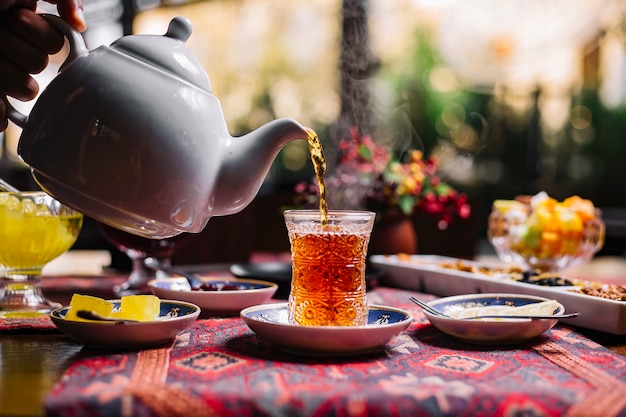Having obsessions with hot tea, hot kopi, or hotpot? You might need to “cool it down” after reading at the evidence!

The idea that hot beverages might increase the risk of oesophageal cancer arises back in the 1930s. To date, there is still limited evidence on the direct relationship between hot beverages and oesophageal cancer. However, few theories on how hot beverages can cause oesophageal cancer had been proposed.
- Hot beverages could cause injury to the oesophagus lining. Repetitive injury of oesophagus cells can increase the risk of normal cells from turning into cancer cells.
- Hot beverages could cause impairment in the “protective lining” of oesophagus. This can increase the exposure of harmful, cancer-causing substances to oesophagus cells, increasing the chances of normal oesophagus cells turning into cancer cells.

Although the link between hot beverages and oesophageal cancer is not well established to date, several studies observed that the habit of drinking hot beverages was associated with an increased risk of oesophageal cancer.1,2 “Very hot beverages” have been classified as “probable carcinogen”, something that probably causes cancer, by The International Agency for Research on Cancer (IARC) back in the year 2016. Nonetheless, the opinions from the experts were always controversial due to various limitations in the previous studies.
Limitation on previous studies
- Both of the studies do not perform direct measures on the temperature of the beverage. Instead, they ask the participants to rank the temperature of their beverages based on different categories, for instance, “very hot”, “hot”, or “warm”. This might cause bias as this is very subjective; Different individuals might have a different experience at the same temperature.
- Even though a higher risk of oesophageal cancer was identified in subjects who drank more hot tea, the mentioned groups were also associated with regular alcohol intake or smoking habits, which both are the significant risk factors for oesophageal cancer. Experts suggested that alcohol and smoking might be the triggering factors instead of hot beverages.

There are still ongoing debates after the published statement in the year 2016. However, a recent study published in the International Journal of Cancer in January 2020 might bring us more pieces of evidence on the relationship between hot beverages and oesophageal cancer!
The study was carried out by Islami et al. in Iran, with a median of 10 years duration. In view of the limitations of previous studies, the study involves a significant number of subjects from Iran, in exact 50,045 individuals aged 40-75 years, with objectively measured tea drinking temperature. The study found that individuals who drink 700 mL or more tea at > 60°C were associated with a 90% increased risk of oesophageal cancer compared to individuals who drink less than 700 mL of tea per day at a lower temperature (< 60°C).3 Therefore, < 60°C might be the best temperature for you to enjoy your beverages!

Nonetheless, more evidence needs to be explored to confirm the direct relationship between hot beverages and oesophageal cancer. The recent study carried out by Islami et al. has given us a great insight into the “safe” temperature to consume beverages. However, the exact pathophysiology and relationship between hot beverages and oesophageal cancer are yet to be established. Experts also suggested that since the current evidence is mostly regional specific, environmental factors should be ruled out in future studies.
References:
- Yang X, Ni Y, Yuan Z, Chen H, Plymoth A, Jin L, et al. Very hot tea drinking increases esophageal squamous cell carcinoma risk in a high-risk area of china: A population-based case–control study. Clinical Epidemiology; 2018. 10:1307–20.
- Yu C, Tang H, Guo Y, Bian Z, Yang L, Chen Y, et al. Hot tea consumption and its interactions with alcohol and tobacco use on the risk for esophageal cancer: A population-based cohort study. Annals of Internal Medicine; 2018 Apr 3. 168(7):489–97.
- Islami F, Poustchi H, Pourshams A, Khoshnia M, Gharavi A, Kamangar F, et al. A prospective study of tea drinking temperature and risk of esophageal squamous cell carcinoma. International Journal of Cancer; 2020 Jan 20. 146(1):18–25.








